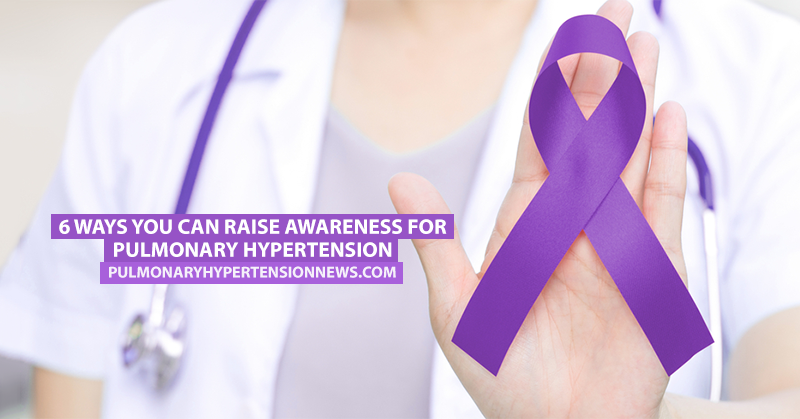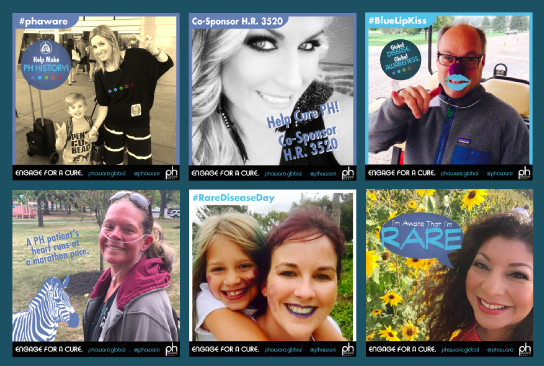6 Ways You Can Raise Awareness For Pulmonary Hypertension
Written by |

Being diagnosed with pulmonary hypertension can be extremely difficult. Readjusting your life after a diagnosis like that can be tricky, but there are several things you can do. Educating yourself is one thing you can–and should–do.
November is Pulmonary Hypertension Awareness Month and there are a lot of ways you can help raise awareness. To get you started, we’ve put together a list from blogger Serena Lawrence on how you can help spread the word about PH.
1. Sharing is caring
With social media, it can be very easy to share videos that explain the severity of pulmonary hypertension and the impact the disease can make on someone’s life. PH Associations and other organizations often make quick media clips that show the impact of pulmonary hypertension, while also explaining what it is. Sharing these powerful videos is a great way to get others engaged and educated.
2. The more you know
Educating the public about pulmonary hypertension can be a powerful thing. The more people who are aware of pulmonary hypertension, the more people there are who understand what patients are going through. Once they understand the severity of the disease, people may be more inclined to help with awareness or fundraising efforts.
Here are seven facts about pulmonary arterial hypertension you might find interesting.
3. Fundraising
Raising funds for pulmonary hypertension not only helps provide more funding, but it can also help raise awareness for pulmonary hypertension. Sometimes fundraising can sound intimidating, but there are many different approaches and styles to raising money.
The fundraising opportunities are endless: you can set up a gala, a golf tournament, a lemonade or apple cider stand, sell T-shirts, jewelry, or just share a link to a PH Association or organization for which you would like to raise money.
4. Open up
I have found that by opening up and sharing my experience, more people are able to engage and connect to my story. By sharing the difficulties and challenges I face, more people have a general understanding of what it’s like to live with pulmonary hypertension. Compassionate understanding for diseases such as this one will encourage others to help as we try to raise awareness and money for this rare disease.
5. Challenge your friends
A great way to get others to participate in Pulmonary Hypertension Awareness Month is by challenging your friends and family to get involved. There are several challenges people have used to raise awareness for PH, such as The Straw Test, The Blue Lips Challenge, or the #AHeartCures video challenge.
Have you ever heard of The Blue Lips Kiss Challenge? Here’s what you should know about it.
6. phaware365
“Global disease. Global awareness. Help make pulmonary hypertension history! It’s a snap with the phaware365™ app.” Raising awareness for pulmonary hypertension has become even easier thanks to this app. The phaware365 app allows users to take a photo and decorate it with PH facts. By sharing it across social media, you can quickly spread awareness and education about pulmonary hypertension.
Wondering what else this amazing app can do for PH awareness? Find out more about phaware365 here.
Read Serena’s original article with six ways to raise awareness during Pulmonary Hypertension Month.
Pulmonary Hypertension News is strictly a news and information website about the disease. It does not provide medical advice, diagnosis, or treatment. This content is not intended to be a substitute for professional medical advice, diagnosis, or treatment. Always seek the advice of your physician or other qualified health provider with any questions you may have regarding a medical condition. Never disregard professional medical advice or delay in seeking it because of something you have read on this website.









